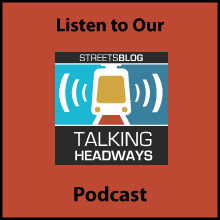Uber has been “operationally profitable” for ten quarters according to Andrew Miller. But how did they get there? By exploiting workers and extracting money from customers through algorithms that determine a willingness to pay. This came after functionally getting rid of competition to be the only game in most towns.
This was also an exploitation of not just people’s wallets and desperate drivers, but our built environment. Uber and ride hailing generally doesn’t work in the suburbs or hold the same value proposition it does in denser urban environments. Despite their cries to the contrary, that they were friends all along, they’ve also damaged transit and clogged cities by taking up precious street space and promising convenience that’s stolen from others.
Thus Uber has set up our transportation system as a mostly uncontested space for players working towards the autonomous future to dominate. We also allow this by continuing to suffocate the alternative by catering to single occupancy vehicles rather than investing in speed improvements and service for transit that could easily service many of these trips.
We need more investments in transit service and frankly in speed. A huge discussion erupted last month when the Finch LRT in Toronto was beaten end to end by a runner. For most elite runners it wouldn’t be too hard to beat a bus on a route with frequent stops when their training runs are 10mph easy. In 2024, New York buses ran at an average speed of 8.17 mph citywide. But if we’re making new investments and spending that much money, we should expect to beat good runners easily on time.
With more frequent and faster transit, as T4 dreams about in a new moonshot report, we could create a safer and healthier environment.
There will always be cars and a need for them, but cities with limited space shouldn’t be exploited by those who would be monopolists. They don’t really care about the greater good, and people should be able to get where they want to go safely without paying through the nose for it.
People have been talking about affordability but as Scott Bernstein reminds me, we used to only pay ~3% of our income to transportation. Now many are forced to pay around 17%. It all starts and ends with our built environment, and how we get around in it.
***
For this intro post and more news in your inbox every morning, sign up for a two week free trial of The Overhead Wire Daily, our popular newsletter established in 2006.







